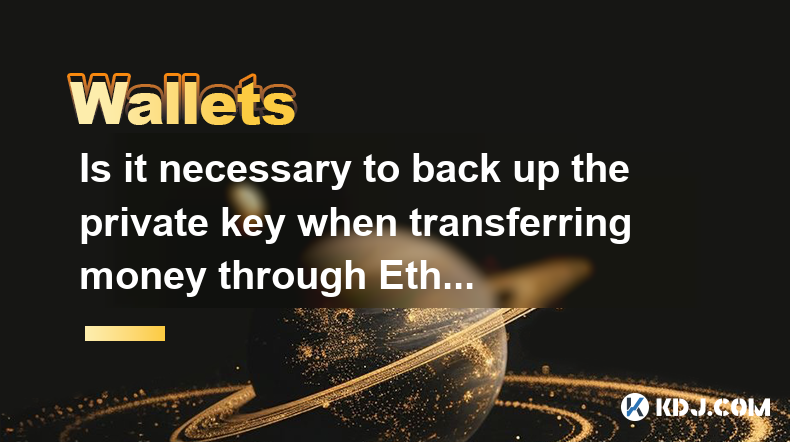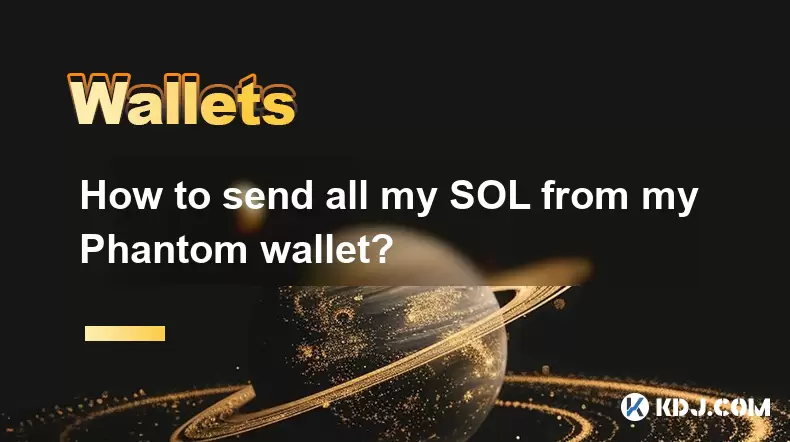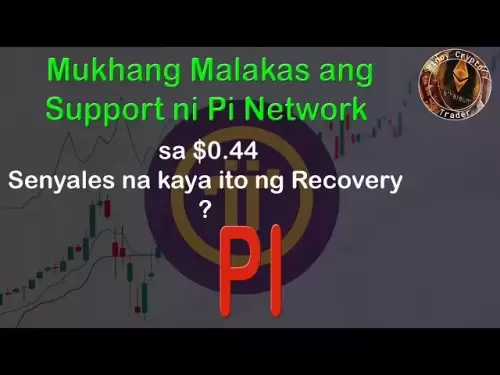-
 Bitcoin
Bitcoin $108,980.7358
0.74% -
 Ethereum
Ethereum $2,571.0926
1.93% -
 Tether USDt
Tether USDt $1.0002
-0.02% -
 XRP
XRP $2.2667
1.60% -
 BNB
BNB $661.7100
0.93% -
 Solana
Solana $151.4189
2.27% -
 USDC
USDC $1.0000
-0.01% -
 TRON
TRON $0.2878
1.42% -
 Dogecoin
Dogecoin $0.1739
6.04% -
 Cardano
Cardano $0.5858
1.83% -
 Hyperliquid
Hyperliquid $39.9185
2.35% -
 Sui
Sui $2.9139
0.69% -
 Bitcoin Cash
Bitcoin Cash $497.2075
2.19% -
 Chainlink
Chainlink $13.6101
2.97% -
 UNUS SED LEO
UNUS SED LEO $9.0469
0.30% -
 Stellar
Stellar $0.2510
5.54% -
 Avalanche
Avalanche $18.2271
1.85% -
 Toncoin
Toncoin $2.8336
3.53% -
 Shiba Inu
Shiba Inu $0.0...01179
3.07% -
 Hedera
Hedera $0.1595
4.34% -
 Litecoin
Litecoin $87.7262
0.69% -
 Monero
Monero $320.3380
1.76% -
 Polkadot
Polkadot $3.4007
1.84% -
 Dai
Dai $1.0000
-0.01% -
 Ethena USDe
Ethena USDe $1.0000
-0.04% -
 Bitget Token
Bitget Token $4.4321
1.03% -
 Uniswap
Uniswap $7.4250
1.33% -
 Aave
Aave $286.5818
5.00% -
 Pepe
Pepe $0.0...01014
5.26% -
 Pi
Pi $0.4652
3.86%
Is it necessary to back up the private key when transferring money through Ethereum wallet?
Backing up your Ethereum private key isn't required during transfers, but is crucial for security. Losing it means losing access to your funds, so multiple secure backups (hardware wallet, paper wallet) are essential.
Mar 22, 2025 at 08:15 pm

Is it Necessary to Back Up the Private Key When Transferring Money Through Ethereum Wallet?
The question of whether to back up your private key when transferring ETH is crucial for the security of your cryptocurrency holdings. While transferring ETH doesn't directly necessitate an immediate private key backup, failing to have a secure backup is extremely risky and could lead to irreversible loss of funds. The act of transferring itself doesn't inherently impact your private key's security, but the key's continued existence is paramount for accessing your funds.
Understanding the Role of the Private Key
Your Ethereum private key is a cryptographic secret, a randomly generated string of characters. It's the sole key that unlocks access to your ETH and any other assets in your Ethereum wallet address. Without it, you cannot access or control your funds. Think of it as the password to your digital bank vault. Losing it is equivalent to losing all your money. Backing it up is not a step in the transaction process, but a crucial security measure.
Why Backing Up Your Private Key is Vital, Even During Transfers
The transfer process itself doesn't require you to actively use your private key in a way that makes it more vulnerable. However, if your wallet or device is compromised before or after the transfer, a backup is essential. If you lose access to your wallet, a backup of your private key is the only way to regain control of your funds. This is independent of any specific transaction.
Methods for Backing Up Your Private Key
Several methods exist for safely backing up your private key, each with its own strengths and weaknesses. Choosing the right method depends on your technical skills and risk tolerance. It's always recommended to use multiple methods for redundancy.
- Hardware Wallets: These physical devices store your private key securely offline. They are generally considered the most secure option.
- Paper Wallets: These involve printing your private key and public address onto paper. Store them securely and offline, away from any electronic devices.
- Secure Software Wallets: Some software wallets offer robust encryption and backup features. Always ensure the wallet is reputable and uses strong security protocols.
- Cloud Storage (Use with Extreme Caution): While convenient, cloud storage presents a security risk if compromised. Only use encrypted cloud storage services if you absolutely must, and only store backups there in addition to other, more secure methods.
Understanding the Risks of Not Backing Up
Failing to back up your private key leaves your Ethereum funds vulnerable to various threats. These threats include:
- Device Loss or Damage: If your phone, computer, or hardware wallet is lost, stolen, or damaged, you'll lose access to your funds without a backup.
- Software Malfunctions: Software glitches or corruption can render your wallet inaccessible, potentially leading to permanent loss of funds.
- Malware or Viruses: Malware can steal your private key, granting attackers full control of your assets.
- Phishing Attacks: Phishing scams can trick you into revealing your private key, resulting in the theft of your funds.
Best Practices for Private Key Management
Beyond simply backing up your private key, several best practices ensure your Ethereum funds remain secure.
- Choose a reputable wallet: Thoroughly research and select a secure and trusted wallet provider.
- Enable two-factor authentication (2FA): This adds an extra layer of security, making it harder for unauthorized users to access your wallet.
- Regularly update your wallet software: Updates often include security patches that address vulnerabilities.
- Be cautious of phishing attempts: Never share your private key with anyone, and be wary of suspicious emails or websites.
- Use strong and unique passwords: Choose strong passwords that are difficult to guess.
The Importance of Security Over Convenience
While managing your private key might seem cumbersome, the security of your Ethereum funds depends on it. The convenience of not backing up your private key is far outweighed by the devastating consequences of losing access to your assets. Prioritize security and adopt multiple backup strategies. Remember, your private key is the only key to your cryptocurrencies.
Frequently Asked Questions:
Q: Is it safe to store my private key on my computer?
A: No, storing your private key on your computer is highly insecure. Your computer is vulnerable to malware, viruses, and hardware failure. Use a hardware wallet or a secure offline method.
Q: Can I recover my private key if I lose it?
A: No, private keys are cryptographic secrets. There's no way to recover them if lost. This is why having a secure backup is critical.
Q: How often should I back up my private key?
A: It's best to back up your private key immediately after acquiring it and then regularly, perhaps once a month or after significant transactions.
Q: What if I forget my password to my wallet?
A: If you forget your password, you may be able to recover it through the wallet's recovery mechanisms, if available. However, you’ll still need your private key to access the funds. If you don't have a backup of your private key, you'll lose your funds.
Q: Are there any free services to back up my private key securely?
A: While some services offer free storage, relying on free services for storing your private key is generally risky. The security of these services may not be sufficient to protect such sensitive information. Consider a secure hardware wallet or offline methods.
Q: Is using a phrase (seed phrase) the same as backing up a private key?
A: Yes, in most wallets, the seed phrase is used to generate your private keys. Backing up your seed phrase is equivalent to backing up your private keys. Securely store your seed phrase as you would your private keys.
Disclaimer:info@kdj.com
The information provided is not trading advice. kdj.com does not assume any responsibility for any investments made based on the information provided in this article. Cryptocurrencies are highly volatile and it is highly recommended that you invest with caution after thorough research!
If you believe that the content used on this website infringes your copyright, please contact us immediately (info@kdj.com) and we will delete it promptly.
- Drake, Bitcoin, and Mainstream Music: A New Era?
- 2025-07-07 12:30:12
- Meme Coins, ROI Potential, 2025 Selection: What's Hot and What's Not?
- 2025-07-07 12:30:12
- Bitcoin, Ethereum, and Dogecoin: Navigating the Crypto Landscape in a Wild Week
- 2025-07-07 12:50:11
- Meme Coin Mania: Explosive Picks and Top Buys in 2025
- 2025-07-07 12:50:11
- Bitcoin, Ethereum, and the Cryptocurrency Market: Riding the Wave of Innovation
- 2025-07-07 12:55:12
- Elon Musk, Bitcoin, and Crypto News: A 2025 Perspective
- 2025-07-07 13:10:12
Related knowledge

How to cancel a pending transaction in Phantom wallet?
Jul 03,2025 at 07:21pm
Understanding Pending Transactions in Phantom WalletA pending transaction in the Phantom wallet occurs when a user initiates a transfer or interaction with the Solana blockchain, but it hasn't yet been confirmed by the network. This can happen due to various reasons such as low transaction fees, network congestion, or incorrect gas settings. It's import...

How to see the estimated value of my tokens in Phantom wallet?
Jul 04,2025 at 12:21am
What is Phantom Wallet?Phantom wallet is one of the most popular cryptocurrency wallets designed for the Solana blockchain. It allows users to store, send, receive, and manage various tokens built on Solana, including SPL tokens and NFTs. The wallet offers a user-friendly interface, making it accessible for both beginners and advanced users in the crypt...

How to lock my Phantom wallet extension?
Jul 03,2025 at 11:14am
What Is the Phantom Wallet and Why Lock It?The Phantom wallet is a popular non-custodial cryptocurrency wallet designed for interacting with the Solana blockchain. Supporting both browser extensions and mobile apps, Phantom allows users to store, send, receive, and stake SOL tokens, as well as interact with decentralized applications (dApps). Securing y...

Does Phantom wallet offer two-factor authentication (2FA)?
Jul 03,2025 at 09:00am
Understanding Phantom Wallet and Its Security FeaturesPhantom wallet is a widely used non-custodial cryptocurrency wallet that supports the Solana blockchain. It allows users to store, send, receive, and interact with decentralized applications (dApps) seamlessly. As security is a top priority for any crypto wallet user, security features like two-facto...

How to send all my SOL from my Phantom wallet?
Jul 06,2025 at 10:00am
Preparing to Send SOL from Your Phantom WalletBefore initiating any transaction, it is crucial to ensure that your Phantom wallet is fully set up and connected to the correct network. Phantom supports multiple networks, but for sending SOL, you must be on the Solana blockchain. Confirm this by checking the network indicator in the top-right corner of th...

What is "rent" on Solana and how does it affect my Phantom wallet?
Jul 02,2025 at 08:35pm
Understanding 'Rent' on SolanaIn the context of Solana, the term 'rent' refers to a storage fee that users pay for maintaining data on the blockchain. Unlike Ethereum, where storage costs are paid once via gas fees during contract deployment, Solana implements a recurring cost model to ensure efficient usage of network resources. This means that any acc...

How to cancel a pending transaction in Phantom wallet?
Jul 03,2025 at 07:21pm
Understanding Pending Transactions in Phantom WalletA pending transaction in the Phantom wallet occurs when a user initiates a transfer or interaction with the Solana blockchain, but it hasn't yet been confirmed by the network. This can happen due to various reasons such as low transaction fees, network congestion, or incorrect gas settings. It's import...

How to see the estimated value of my tokens in Phantom wallet?
Jul 04,2025 at 12:21am
What is Phantom Wallet?Phantom wallet is one of the most popular cryptocurrency wallets designed for the Solana blockchain. It allows users to store, send, receive, and manage various tokens built on Solana, including SPL tokens and NFTs. The wallet offers a user-friendly interface, making it accessible for both beginners and advanced users in the crypt...

How to lock my Phantom wallet extension?
Jul 03,2025 at 11:14am
What Is the Phantom Wallet and Why Lock It?The Phantom wallet is a popular non-custodial cryptocurrency wallet designed for interacting with the Solana blockchain. Supporting both browser extensions and mobile apps, Phantom allows users to store, send, receive, and stake SOL tokens, as well as interact with decentralized applications (dApps). Securing y...

Does Phantom wallet offer two-factor authentication (2FA)?
Jul 03,2025 at 09:00am
Understanding Phantom Wallet and Its Security FeaturesPhantom wallet is a widely used non-custodial cryptocurrency wallet that supports the Solana blockchain. It allows users to store, send, receive, and interact with decentralized applications (dApps) seamlessly. As security is a top priority for any crypto wallet user, security features like two-facto...

How to send all my SOL from my Phantom wallet?
Jul 06,2025 at 10:00am
Preparing to Send SOL from Your Phantom WalletBefore initiating any transaction, it is crucial to ensure that your Phantom wallet is fully set up and connected to the correct network. Phantom supports multiple networks, but for sending SOL, you must be on the Solana blockchain. Confirm this by checking the network indicator in the top-right corner of th...

What is "rent" on Solana and how does it affect my Phantom wallet?
Jul 02,2025 at 08:35pm
Understanding 'Rent' on SolanaIn the context of Solana, the term 'rent' refers to a storage fee that users pay for maintaining data on the blockchain. Unlike Ethereum, where storage costs are paid once via gas fees during contract deployment, Solana implements a recurring cost model to ensure efficient usage of network resources. This means that any acc...
See all articles

























































































